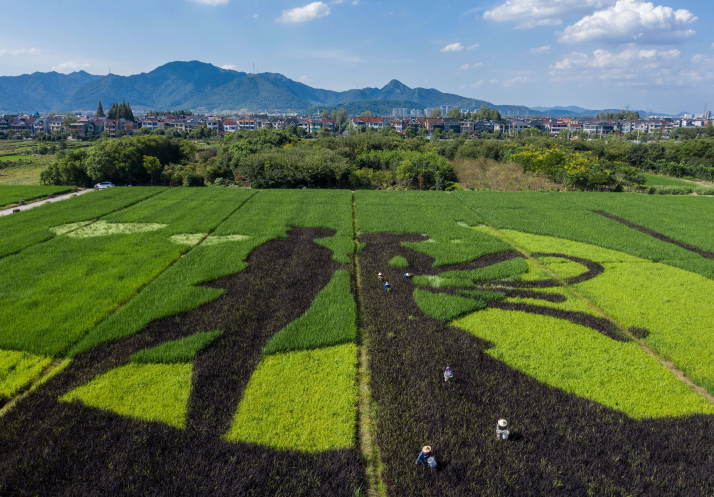
An aerial photo shows artwork in a rice paddy as a tourist attraction in Hongqi Village in Hangzhou, Zhejiang Province in east China, on August 12 (XINHUA)
Farmers' cooperatives are economic organizations established and managed by farmers based on the household contract responsibility system. Since the 18th National Congress of the Communist Party of China held in November 2012, the organizations' functions have been enhanced, providing more services at higher quality. Today, there are over 2.2 million farmers' cooperatives in China, which have grown into modern agriculture organizations and are a leading force for farmers amid market competition at home and abroad.
President Xi Jinping attaches great importance to the development of farmers' cooperatives. During his recent inspection in Jilin Province, northeast China, he encouraged the development of farmers' organizations suited to local conditions across the country and the continued promotion of their experience, calling for more efforts to explore other ways to develop specialized cooperatives nationwide.
Through organizing agricultural activities among farmers, cooperatives can improve their work efficiency and competitiveness. Besides producing cotton, grain, meat and eggs, the organizations have also established primary, secondary and tertiary industries, increasing people's income. They are an active channel for farmers to adjust their operations and develop modern agriculture technology. That is a step forward for sustainable production on a large scale, with a focus on innovation.
Farmers' cooperatives have also explored new businesses in rural tourism and e-commerce, building a complete industrial chain in some villages. Today, there are over 40,000 e-commerce cooperatives and 13,000 cooperatives engaged in leisure agriculture and rural tourism. Thanks to this mechanism, they have attracted a large number of college graduates and migrant workers returning to their hometowns to start businesses and contribute to the cooperatives' development.

